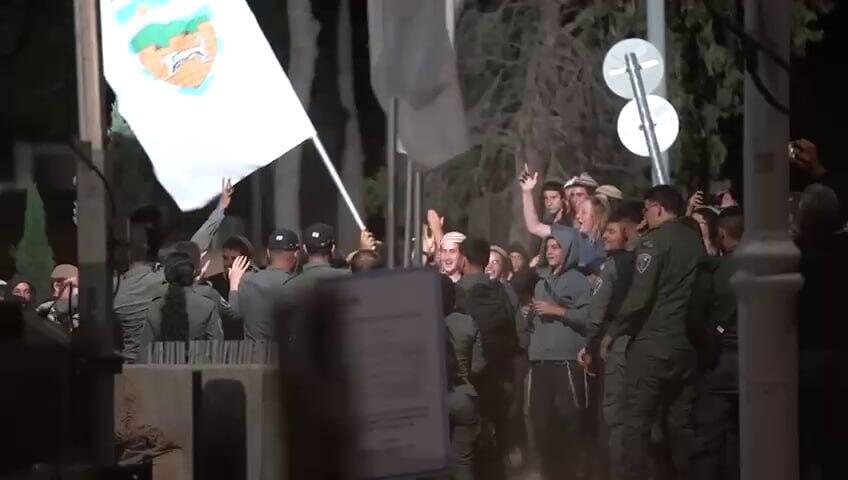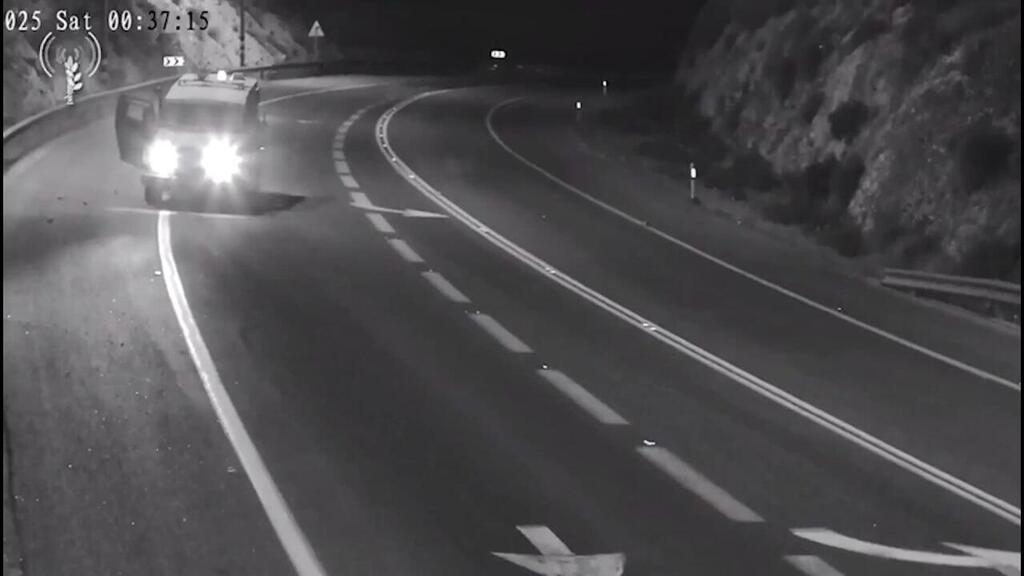Over the weekend, a violent incident in Binyamin, in the West Bank, drew public attention. The accounts given by the IDF and by the right-wing extremists—often labeled “hilltop youth”—are sharply contradictory. The military claims the youths violently resisted evacuation. The youths, for their part, claim the battalion commander who arrived on the scene used unnecessary force. They say they went up to the hilltop after a Border Police unit had left, to ensure that Palestinians wouldn’t set the area on fire.
Given that a 14-year-old boy was wounded by gunfire, the incident must be fully investigated. Had something similar happened to a teen at a protest on Kaplan Street, the media would be filled with round-the-clock coverage—and rightly so. This discrepancy suggests that the blood of settlers is treated as less valuable.
The same was true in the case of Ahuvia Sandak, who was killed during a police chase under still-unclear circumstances, and in the case of Yechiel Indor, who was accused of killing a Palestinian, only for it to later emerge that he had been the victim of an attack.
This disparity stems from how settlers and hilltop youth are viewed by Israel’s security institutions and much of the public, who fail to understand the critical importance of the Jewish presence in Judea and Samaria - the biblical terms for the West Bank, and the pioneering role these communities play. They are the modern-day equivalents of those who drained swamps and plowed land before the founding of the state, risking their lives in the fight for the land.
While most Israelis today admire the early pioneers who settled the Kinneret and the Negev, many lack the same historical and security awareness regarding the youth who establish and defend outposts in Judea and Samaria. Some are so devoid of historical perspective that they go so far as to call these actions “Jewish terrorism.”
For many in Israel, Judea and Samaria are viewed as “beyond the mountains of darkness”—remote, undesirable places—rather than as areas of national value. And this, even though the security threat there is far greater than in other parts of the country. Even the events of October 7 have seemingly failed to alter public understanding of the need to protect the land.
Ironically, it was left-wing governments that once led the drive to settle Judea and Samaria. But over time, the left has shifted from supporting the liberation of the homeland to defending the rights of those who want to destroy us. In their eyes, the settlers have gone from being national pioneers to violent hilltop youth.
Unlike the pre-state days, today it is not the role of citizens to defend themselves against attackers. That responsibility lies with the State of Israel. Yes, there are extreme cases of Jewish “price tag” attacks, usually in the form of graffiti or arson, often following the murder of Jews, such as the killing of Tzeela Gez and her unborn child. In rarer cases, these incidents have involved killings. These acts are rightly condemned and prosecuted by the authorities, as they should be.
Get the Ynetnews app on your smartphone: Google Play: https://bit.ly/4eJ37pE | Apple App Store: https://bit.ly/3ZL7iNv
Yet far too often, the State of Israel fails to protect its citizens in Judea and Samaria—or the land itself. Hopefully, we’ll soon know exactly what happened over the weekend. But in the meantime, it’s not the settlers in Judea and Samaria who need to reassess their position. The ones who need to rethink things are us—the comfortable, well-off citizens who won’t sleep in tents or trailers, who toss around terms like “Jewish terrorism” without a second thought, and who, consciously or not, expect those living “beyond the mountains of darkness” to do the dirty work for us.
History doesn’t always unfold in a dramatic moment, like an airstrike in Iran. Sometimes, it’s written slowly, on winding roads in remote hills. And sometimes, the people writing that history aren’t fighter pilots or Mossad agents—but Jews with sidelocks and yarmulkes.



